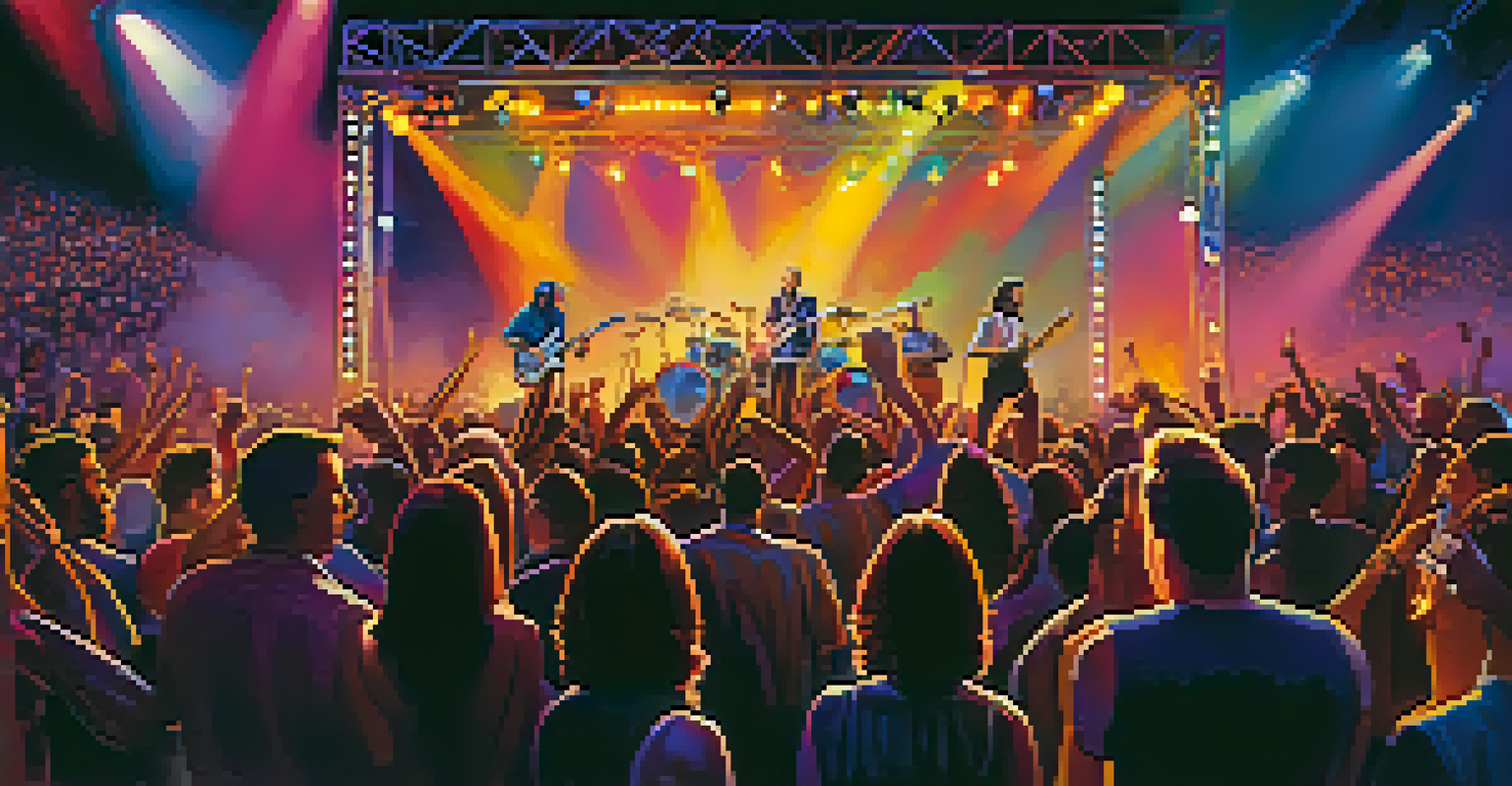Music as a Medium for Spiritual Awakening and Growth

Understanding the Connection Between Music and Spirituality
Music has always been an integral part of human culture, resonating with our emotions and spirit. It transcends language barriers, allowing us to connect with deeper aspects of ourselves and the universe. This connection often leads to a sense of belonging and understanding, which can be a stepping stone in one's spiritual journey.
Music is the shorthand of emotion.
Think about the last time you heard a song that moved you to tears or filled you with joy. That emotional response is a powerful reminder of music's ability to touch our souls. It’s as if the melodies and lyrics unlock hidden feelings, prompting us to reflect on our lives and beliefs.
Through music, individuals can explore their spirituality in a way that feels both safe and enlightening. Whether it’s through singing, listening, or even creating, the act of engaging with music can facilitate profound personal insights and growth.
How Different Genres Influence Spiritual Experiences
Different genres of music can evoke various spiritual experiences, shaping our emotional landscapes in unique ways. For instance, classical music often instills a sense of calm and reflection, while uplifting gospel tunes can inspire feelings of hope and community. Each genre has its own energy, resonating with different aspects of our spiritual selves.

Imagine sitting in a quiet room, listening to a serene piece by Bach, allowing your mind to drift into a meditative state. In contrast, think of the electrifying energy of a live rock concert, where the collective experience can feel almost transcendent. Each musical experience has the potential to awaken different spiritual dimensions within us.
By exploring various genres, individuals can find what resonates most with their spiritual journey, using these sounds as tools for growth and understanding. This exploration can lead to greater self-awareness and a deeper connection to the world around us.
Music as a Tool for Meditation and Mindfulness
Meditation and mindfulness practices often incorporate music as a backdrop to enhance focus and relaxation. Soft, ambient sounds can help quiet the mind, allowing individuals to delve deeper into their thoughts and feelings. This auditory support can create a sacred space, making spiritual exploration feel more accessible.
Where words fail, music speaks.
Consider how certain playlists designed for meditation can guide your breathing and rhythm, helping you establish a deeper connection with yourself. The right music can elevate a simple meditation session into a transformative experience, facilitating a sense of peace and clarity.
Incorporating music into meditation practices can also deepen emotional release and grounding, making it easier to process feelings and experiences. By weaving music into these practices, individuals can cultivate a more profound sense of presence and connectedness with their inner selves.
Live Music and Spiritual Community Connection
Attending live music events can foster a sense of community and belonging that supports spiritual growth. The shared experience of being surrounded by others who are equally moved creates a powerful collective energy. This sense of unity can be a catalyst for personal transformation and deeper connections.
Think about the last time you were at a concert, feeling the vibrations of the music pulse through the crowd. This shared emotional experience often leads to moments of enlightenment and connection, as individuals bond over their love for the art. It’s a reminder that we are not alone in our journeys.
These gatherings can serve as sacred spaces where individuals feel safe to express themselves and explore their spirituality. The communal aspect of music can amplify personal insights, allowing for collective healing and growth.
Exploring Lyrics for Spiritual Insight
The lyrics of songs often contain profound wisdom and insights that can provoke deep reflection. By analyzing the messages behind our favorite tunes, we can uncover hidden truths about ourselves and the world around us. This lyrical exploration can serve as a powerful guide on our spiritual paths.
For example, consider a song that speaks to themes of love, loss, or resilience. Engaging with these lyrics can help us process our own experiences, offering comfort and understanding. It's like having a conversation with a friend who gets where you're coming from.
By consciously connecting with the messages in music, we can gain clarity and perspective, which can be instrumental in our spiritual development. The act of listening becomes an act of introspection, illuminating our personal journeys.
Creating Music as a Spiritual Practice
The act of creating music can be a deeply spiritual practice, allowing individuals to express their innermost thoughts and feelings. Whether through songwriting, playing an instrument, or vocal improvisation, this creative process can act as a form of meditation, channeling emotions into a tangible form.
Think of artists who pour their hearts into their music, sharing their stories and struggles. This vulnerability not only serves as a healing outlet for the creators but also resonates with listeners on a personal level, creating a cycle of shared experience and growth.
Engaging in music creation can provide a pathway for self-discovery, helping individuals articulate their spiritual journeys. It's a beautiful reminder that our voices and experiences matter, contributing to the collective tapestry of human existence.
The Role of Music in Rituals and Ceremonies
Music has played a significant role in rituals and ceremonies across cultures for centuries. It acts as a bridge between the physical and spiritual realms, enhancing the sacredness of the moment. From weddings to spiritual ceremonies, music enriches these experiences, creating a deeper connection to the divine.
Consider how traditional chants or songs are often incorporated into religious practices. These musical elements not only elevate the experience but also help participants feel more engaged and present. It's as if the music draws everyone into a shared spiritual space.

Incorporating music into rituals can also provide a sense of continuity and tradition, connecting individuals to their heritage. This connection fosters a greater understanding of one's spiritual roots and encourages personal growth within a communal context.